| Meet the man from Melbourne who’s adding Tonino Lamborghini to his portfolio of Utopia luxury hotels on Phuket It’s break time in a Melbourne primary school playground in the early 1990s and a swarm of eager-eyed students huddle in the corner chatting in hushed tones. At the centre of the scrum, eight-year-old Hachi Yin is busy exchanging exotic objects for loose change and lunch money. “I was the only Chinese kid at school back then and my relatives always brought me candy when they visited us in Australia,” Hachi says. “I soon realised I could make a quick buck selling these cool and unusual sweets to my classmates — and that, I guess, was my first foray into business.” Three decades on, he heads up one of the fastest-growing real estate companies on Phuket. In just five years Utopia Corporation has launched a total of nine villa, condominium and hotel properties. Now the multifaceted firm is preparing to collaborate with global luxury brand Tonino Lamborghini on its most ambitious project to date. But for Hachi real estate represents just the latest success in a colourful career that’s not slowed since his candy hustling days. An early adopter of eBay, he started selling second-hand toys and video games - acquired cut price from friends who were “more than happy to pocket a few dollars of their parents’ money” - on the auction site before he turned 15. By the time Hachi reached university he’d launched a comic book and VCD (the precursor to DVDs) store, catering to the demand from Asian overseas students for Asian-language films and graphic novels. He eventually sold the store and invested in a telemarketing company selling electricity - all the while studying. |
| In 2007, Hachi graduated from the reputable Monash University with a BSc in Pharmacology & Anatomy and worked as a nutritionist for the next few years. “I pretty much did that for my parents. There’s a lot of truth in the cliche that every Asian parent wants their kid to become a doctor or a lawyer,” he jokes. “But I never really enjoyed it because my mind was always on running a business. In fact, my parents didn’t even know about any of these side ventures at the time. They only found out when I quit being a nutritionist and moved to Phuket!” A combination of a quarter-life crisis, limited professional fulfilment and a lifeline from his aunt to join her fledging Thailand-based property agency were more than enough to convince Hachi to trade his comfortable existence in Melbourne for a new adventure on the Pearl of the Andaman. The business, known then as International Property Advisory, had been launched two years earlier in 2010 to service Australian retirees looking to invest in sun, sea, sand and real estate in Southeast Asia’s leading resort destination. Hachi’s arrival, however, coincided with the rise in demand from Chinese second-home investors. “My aunt had been in the agency game since the 1980s and was instrumental in Melbourne’s Chinese investment boom,” he says. “We saw similar trends emerging in the Phuket market and decided to shift our focus towards Mainland buyers. A few months later, we opened our Beijing office.” It soon became apparent however that simply acting as a broker between Chinese clients and local developers was a zero-sum game. According to Hachi, the team spent most of its time handling complaints from investors. Eventually, they decided to take matters into their own hands and Utopia Corporation was born. |
The first undertaking was the acquisition of the land bank. This included plots in some of the island’s most established locales such as Kata Beach, Naiharn Beach and Karon, as well as up-and-coming in-land destinations in Thalang. Following the introduction in 2015 of its inaugural project Utopia Kata, a boutique condo property only moments from the eponymous beach, the firm rapidly surpassed its own development expectation of a launch a year, reaching six in total by 2018.
Arguably its highest-profile project to date is the multi-award-winning flagship property, Utopia Naiharn. Strategically poised between two of Phuket’s most impressive beaches, Rawai and Naiharn, the 110-all-suite resort channels the surrounding nature with minimalist architecture, a waterpark and easy access to nearby Yanui Beach. More than 80 percent of the units, meanwhile, are reportedly owned by Chinese investors, demonstrating how successful Utopia’s strategy to date has been.
In line with the growth of its hospitality portfolio, the firm launched Utopia Hotel Group, a dedicated hospitality arm, in early 2020, with future plans to franchise the operation and management business across Phuket. Other recent diversifications include the addition of Club Utopia, the company that houses the IT division namely Zeus Teknology, which amongst other things, specialises in virtual reality property tours as part of the wider online real estate shopping experience. This was obviously a boon when the pandemic forced the closure of Thailand’s borders.
“We’d already been using Zeus Teknology for two years, so when Covid came we just emphasised it,” Hachi says. “Many of the Chinese clients who buy from us have never even been to Phuket, so this has always been popular with them. Obviously already having this technology at our fingertips really helped us a lot over the last year.”
L ike most companies in Thailand’s real estate and hospitality sector, Utopia still inevitably bore the brunt of the pandemic, which has brought both industries to an almost-standstill for more than a year. Utopia’s response however has been to look a little closer to home with yet another pivot for the firm. “We started to think about how we can start opening up to the Thai market, as we’d never targeted it before,” Hachi explains. “It is now one of our priorities for 2021, but the challenge is that, unlike in China, nobody here really knows us.”
The advantage Utopia does have in targeting the local market however is its product diversity. One of the company’s unique selling points from its inception has been its ability to differentiate products by selecting a particular theme for each project, such as the recently launched Utopia Thalang, which takes aesthetic inspiration from Japan, and the Moroccan-flecked, long-stay villa-project Utopia Yamu.
It is Utopia’s latest project unveiling that Hachi is confident will propel the brand into investor consciousness in Thailand - and potentially farther afield. Nestled on Phuket’s sunrise coast overlooking Phang Nga Bay, the Bay of Icons is a 20 rai (3.2 hectares) seafront destination surrounding Ao Po Grand Marina, which the real estate firm intends to transform over the next five years into a master-planned lifestyle and leisure enclave. Slated to feature guests’ access by sea and a private helipad, luxury designer boutiques and retail outlets and some of the island’s top dining destinations, this is by far Utopia's most audacious move so far. Globally-renowned luxury brand is Tonino Lamborghini is already onboard with its first foray into Southeast Asian real estate. Completion of the branded boutique hotel is due for 2023.
“This landmark partnership represents the final piece of our profile,” Hachi says. “We now cover all investor bases from THB2 million condos to super luxury villas — and this collaboration is the ultimate testament to the trust placed in us since we launched just a few years ago. It demonstrates that we’re now at a level to attract such celebrated brands to partner with us.”
Pausing to reflect on the apex of Utopia’s achievements over the last half-decade, Hachi once again thinks back to his formative days in Melbourne. “I had a good job, nice cars and was making good money, but I wasn’t happy,” he says. “It sounds trite, but money isn’t the real happiness. Loving what you do is the closest you get to that — and that’s what we hope to instill in our team. Only when you love what you do will you realise it’s no longer work.”
“That’s why our company motto is Work Hard Play Harder!”
Arguably its highest-profile project to date is the multi-award-winning flagship property, Utopia Naiharn. Strategically poised between two of Phuket’s most impressive beaches, Rawai and Naiharn, the 110-all-suite resort channels the surrounding nature with minimalist architecture, a waterpark and easy access to nearby Yanui Beach. More than 80 percent of the units, meanwhile, are reportedly owned by Chinese investors, demonstrating how successful Utopia’s strategy to date has been.
In line with the growth of its hospitality portfolio, the firm launched Utopia Hotel Group, a dedicated hospitality arm, in early 2020, with future plans to franchise the operation and management business across Phuket. Other recent diversifications include the addition of Club Utopia, the company that houses the IT division namely Zeus Teknology, which amongst other things, specialises in virtual reality property tours as part of the wider online real estate shopping experience. This was obviously a boon when the pandemic forced the closure of Thailand’s borders.
“We’d already been using Zeus Teknology for two years, so when Covid came we just emphasised it,” Hachi says. “Many of the Chinese clients who buy from us have never even been to Phuket, so this has always been popular with them. Obviously already having this technology at our fingertips really helped us a lot over the last year.”
L ike most companies in Thailand’s real estate and hospitality sector, Utopia still inevitably bore the brunt of the pandemic, which has brought both industries to an almost-standstill for more than a year. Utopia’s response however has been to look a little closer to home with yet another pivot for the firm. “We started to think about how we can start opening up to the Thai market, as we’d never targeted it before,” Hachi explains. “It is now one of our priorities for 2021, but the challenge is that, unlike in China, nobody here really knows us.”
The advantage Utopia does have in targeting the local market however is its product diversity. One of the company’s unique selling points from its inception has been its ability to differentiate products by selecting a particular theme for each project, such as the recently launched Utopia Thalang, which takes aesthetic inspiration from Japan, and the Moroccan-flecked, long-stay villa-project Utopia Yamu.
It is Utopia’s latest project unveiling that Hachi is confident will propel the brand into investor consciousness in Thailand - and potentially farther afield. Nestled on Phuket’s sunrise coast overlooking Phang Nga Bay, the Bay of Icons is a 20 rai (3.2 hectares) seafront destination surrounding Ao Po Grand Marina, which the real estate firm intends to transform over the next five years into a master-planned lifestyle and leisure enclave. Slated to feature guests’ access by sea and a private helipad, luxury designer boutiques and retail outlets and some of the island’s top dining destinations, this is by far Utopia's most audacious move so far. Globally-renowned luxury brand is Tonino Lamborghini is already onboard with its first foray into Southeast Asian real estate. Completion of the branded boutique hotel is due for 2023.
“This landmark partnership represents the final piece of our profile,” Hachi says. “We now cover all investor bases from THB2 million condos to super luxury villas — and this collaboration is the ultimate testament to the trust placed in us since we launched just a few years ago. It demonstrates that we’re now at a level to attract such celebrated brands to partner with us.”
Pausing to reflect on the apex of Utopia’s achievements over the last half-decade, Hachi once again thinks back to his formative days in Melbourne. “I had a good job, nice cars and was making good money, but I wasn’t happy,” he says. “It sounds trite, but money isn’t the real happiness. Loving what you do is the closest you get to that — and that’s what we hope to instill in our team. Only when you love what you do will you realise it’s no longer work.”
“That’s why our company motto is Work Hard Play Harder!”

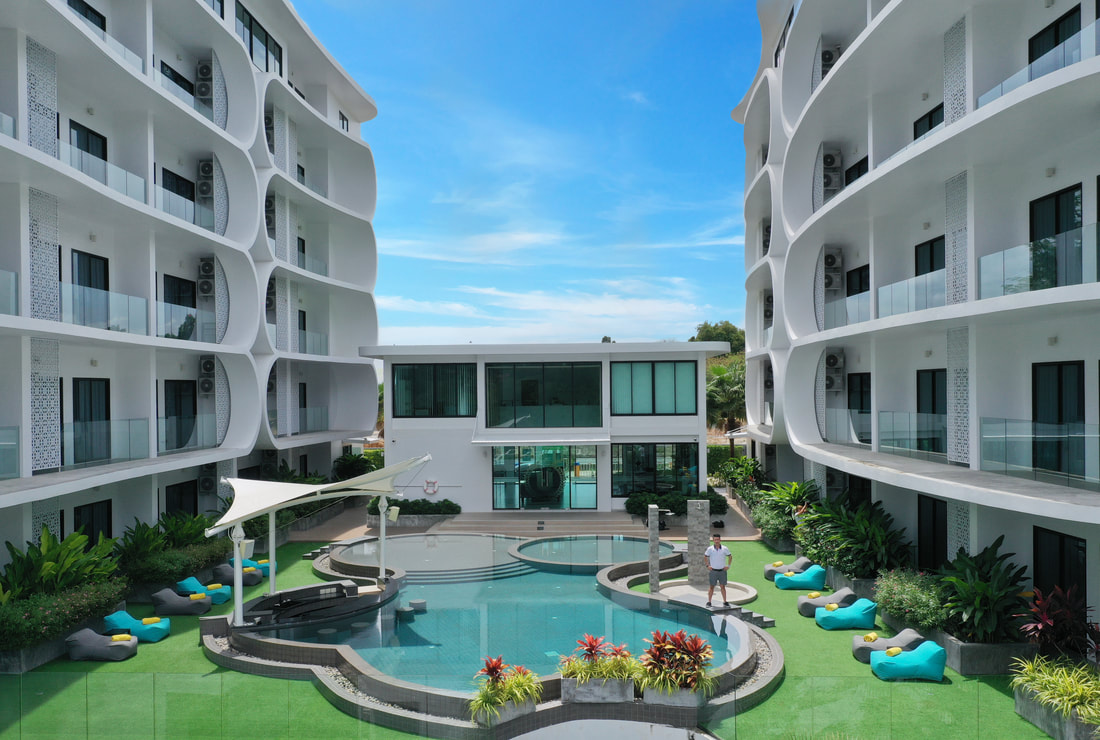
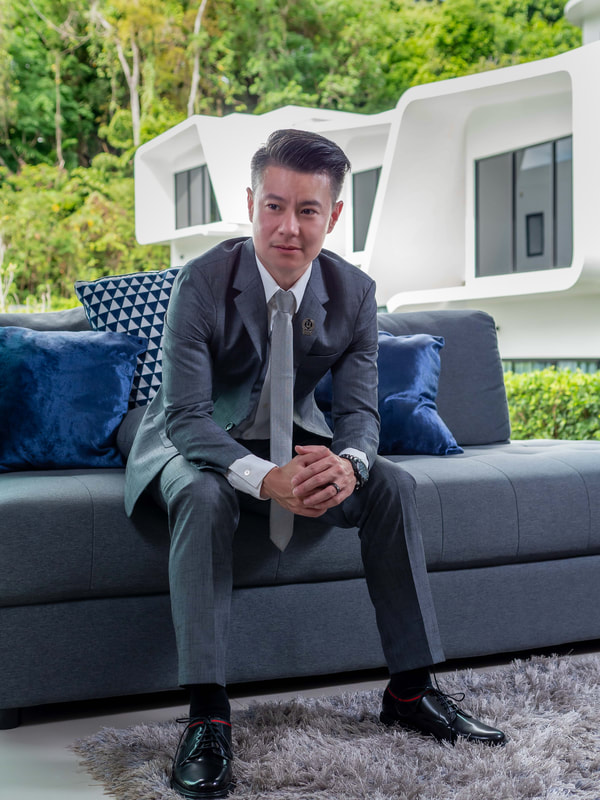
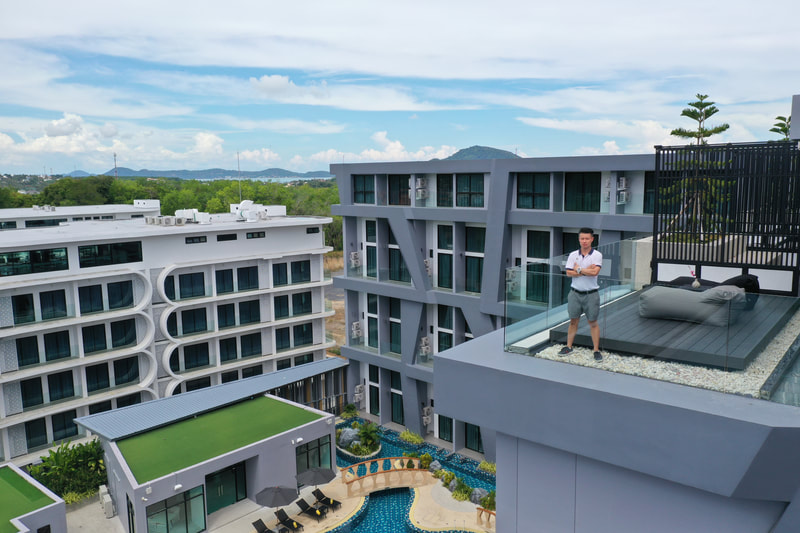
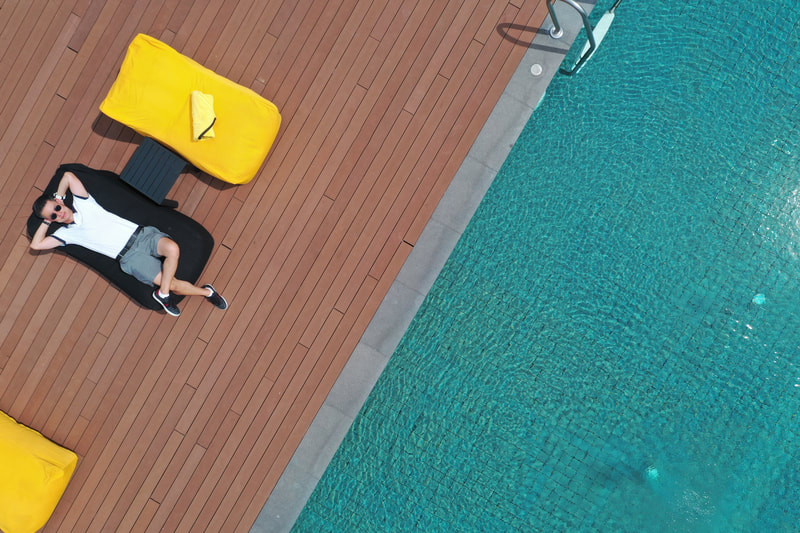
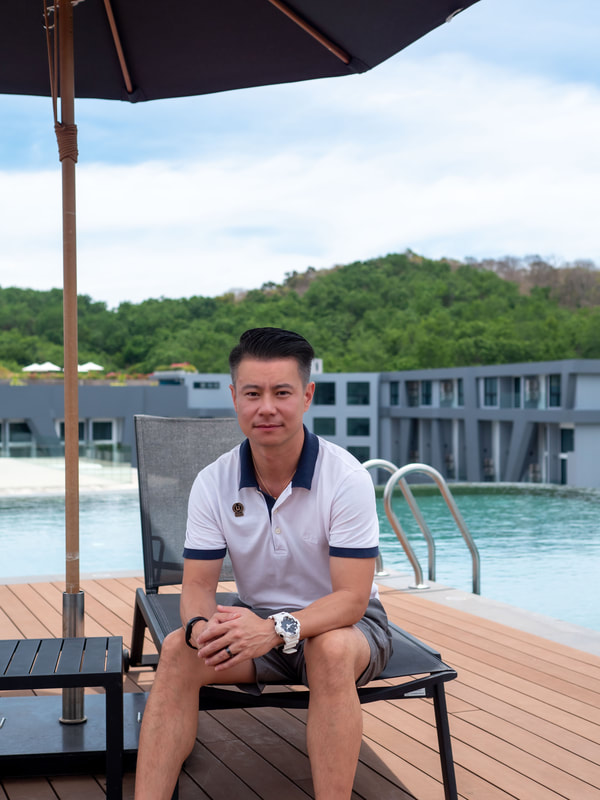
 RSS Feed
RSS Feed
















